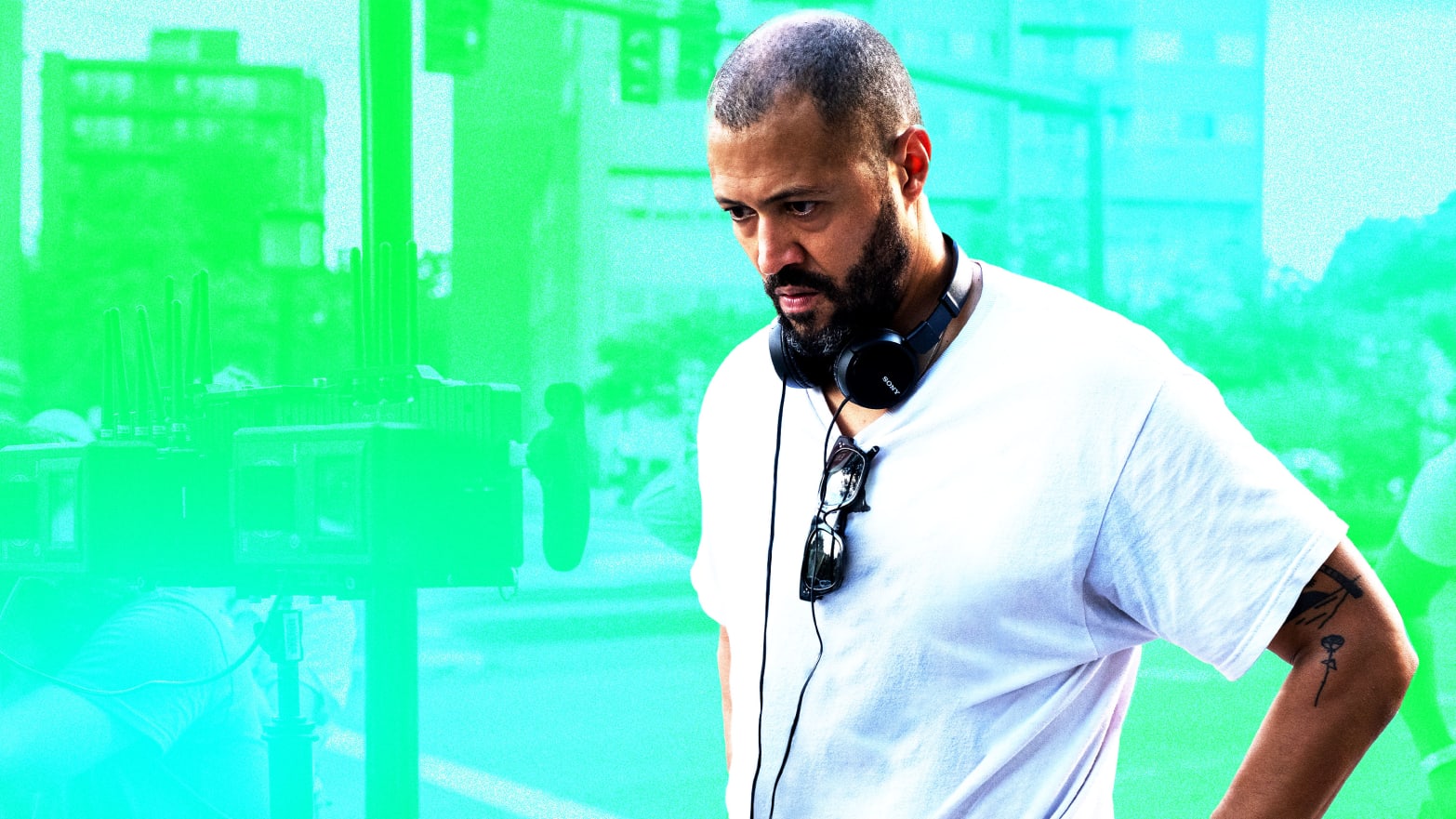Ten years ago, Cord Jefferson was blogging for Gawker. Now, his directorial debut, American Fiction, is almost guaranteed a Best Picture nomination at the Oscars and he’s a frontrunner for Best Adapted Screenplay.
In this episode of The Last Laugh podcast, Jefferson traces his path from online journalist to full-fledged filmmaker, with stops along the way writing for Master of None, The Good Place, and HBO’s Watchmen, for which he won an Emmy Award in 2020. He talks about nailing the darkly satirical tone of his new movie that interrogates the expectations of Black artists, how his own experience in Hollywood influenced the script, and the “emotional breaking point” he hit before getting to where he is today.
“I still miss journalism,” Jefferson says when I ask him about making the rare move from writing about culture to becoming part of it. “The grass may always be greener, because there’s a lot of headaches over here, I will tell you that.”
Jefferson had always been interested in screenwriting, but didn’t quite know how to break into the business at first. “I had no connections, no family connections, no friend connections,” he says. The obstacles to entering Hollywood felt “insurmountable” until he got an email out of the blue asking if he wanted to join the writers’ room for a LeBron James-produced show called Survivor’s Remorse created by Mike O’Malley that ran for four seasons on Starz.
That gig led to a spot on the original writing staff for The Nightly Show with Larry Wilmore, where Jefferson got to experience the “constant grind” of topical late-night television. “It wasn’t just the brutal pace of a regular late-night show, we were also trying to figure out what the show was and build it as we jumped off the cliff.” Then there were stints on comedy series like Aziz Ansari’s Master of None and Mike Schur’s The Good Place, and dramas like Damon Lindelof’s Watchmen and Patrick Somerville’s Station Eleven.
His unique ability to toggle between comedy and drama turned out to be the perfect preparation for American Fiction, which can be laugh-out-loud hysterical one minute and devastatingly tragic the next. “I just wanted it to feel like life,” Jefferson says. “And I think that life is neither comedy nor tragedy. It’s frequently both of those in the same day, sometimes the same hour.”
“We’ve gotten so self-serious when we talk about race in America, and identity and sexuality,” Jefferson adds. “And I understand why people are serious about these issues, because they are serious issues with occasionally fatal consequences. So I understand the impulse to be very stoic when talking about these things. But I also think that there’s more than one way to build empathy about these kinds of issues. And there’s more than one way to get people interested. And I frequently think that laughter is one of those ways.”
The film, which won the coveted audience award at the Toronto International Film Festival and just racked up five nominations at the Independent Spirit Awards on its path to the Oscars, is based on the 2011 novel Erasure by Percival Everett. It tells the story of a Black author named Monk (a phenomenal Jeffrey Wright) who finds more success than ever before when he decides to give white readers what they want from a Black artist: in this case, a supposedly authentic story about the “streets” by an imaginary ex-con titled My Pafology.
As The Daily Beast critic Nick Schager wrote of American Fiction and its central performance after he saw the film in Toronto, “If [Wright has] ever been better, it’s difficult to remember when, and thrillingly, his latest is a triumphant satire about race, exploitation, family, and identity that’s as rich and captivating as his tour de force.”
When Jefferson first read Erasure, he was immediately struck by the “many overlaps” with his own experience in both journalism and entertainment. “There’s a real set of rigid restrictions that people put around Black artists,” he says. Despite his varied résumé, he’s been “offered basically every single inspirational slave movie there is to be made, every single inspirational gang member movie there is to be made.”
“I’ve had conversations in which I’ve been told essentially to make a character in a script Blacker by an executive,” Jefferson reveals. “And then the minute that I asked them like, ‘Well, what’s Blacker mean to you? You have to explain to me what it means to make somebody Blacker.’ Then, of course, they just drop that note because they know that they’ll sound like idiots if they try to explain it to me.”
But Jefferson also concedes that the existence of American Fiction, which tackles these issues head-on through satire, is an important counterexample to this trend. “I do think that things are changing for the better,” he says. “We’ve obviously got a long way to go and I wish that things were speedier. But I never want to be so cynical to say that nothing’s gotten better. I think that things have gotten better. And we’re seeing that progress daily.”
So how will Jefferson follow what is likely to be an awards-laden run for his directorial debut? By defying those expectations placed on him once again and writing a new movie that he describes as a “neo-noirish Western set in the American Southwest.”
While the film contains “some similar themes” to American Fiction, he tells me “it’s also a big departure in a way that makes me feel a little scared that I won’t be able to do it.”
“But I think that on the other side of the fear, for me, have always been the best parts of my life,” Jefferson adds. “So I just want to keep challenging myself. I don’t want to get bogged down in like, well, this is what worked last time so let’s just try doing that again. Because that’s the main problem with Hollywood in general these days. I never want to get bogged down in that mentality.”
Listen to the episode now and follow The Last Laugh on Apple Podcasts, Spotify, Google, or wherever you get your podcasts to be the first to hear new episodes when they are released every Wednesday.

